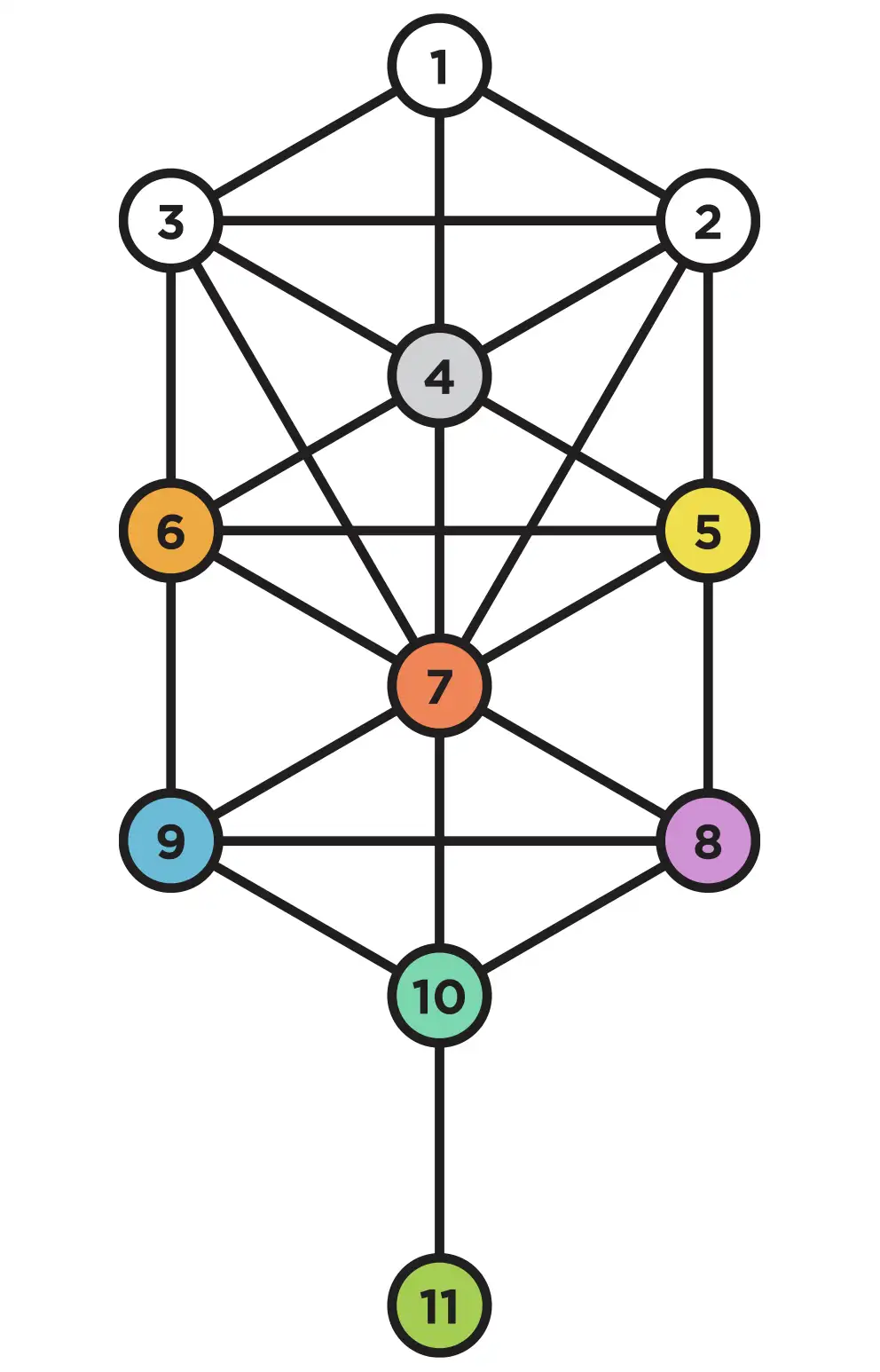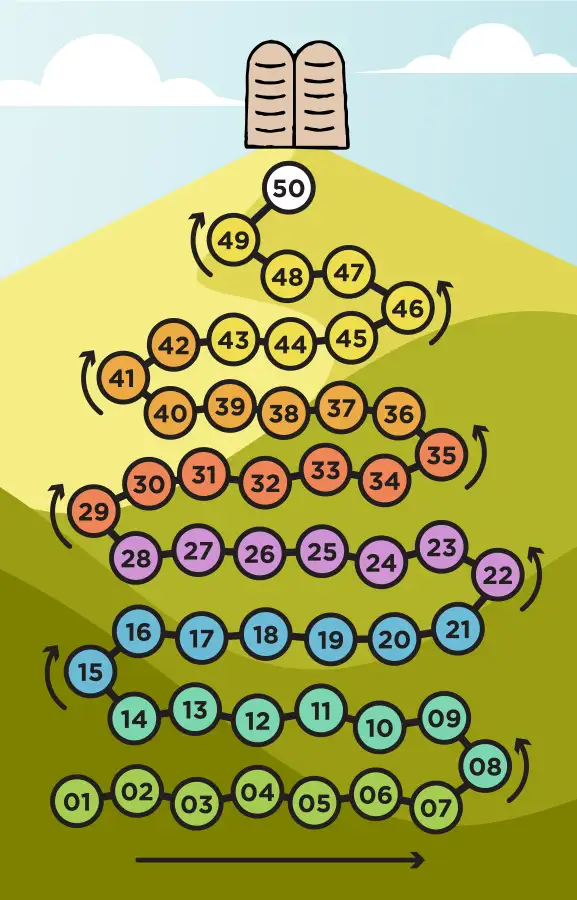Counting of the Omer (Sefirat HaOmer) is a ritual in Judaism commanded in Leviticus 23:9-21 (Deuteronomy 16:9-12) to “count seven full weeks from the day after the Sabbath” until Shavuot, the Feast of Weeks (Exodus 34:22, Deuteronomy 16:10), when it is believed the God of Israel gave Torah at Mt Sinai.
“You shall count seven full weeks from the day after the Sabbath, from the day that you brought the sheaf of the wave offering. You shall count fifty days to the day after the seventh Sabbath. Then you shall present a grain offering of new grain to the Lord. Leviticus 23:15-16
On Shavuot the people were commanded to “present a grain offering of new grain to the Lord.” This offering was an Omer measure of barley. An Omer is an ancient biblical measurement of volume for unthreshed stalks of gain as used for the Temple offering. These 49 (50) days of counting the Omer are known as the Omer period.
The Omer period corresponds with the Christian calendar beginning with death of Christ at the time of Passover. Forty days later, Jesus ascended into heaven (Acts 2:1-8) like Moses ascending Mt Sinai. On the final day, the Day of Pentecost, the Spirit descended upon Jesus’ disciples and followers (Acts 2:13). Fulfilling the words of Moses and the prophets, the Spirit circumcises our hearts and writes Torah upon them so that we will love God and love our neighbors as ourselves (Deuteronomy 30:6, Jeremiah 31:30, Ezekiel 36:26, Colossians 2:11).
In Judaism, there are four such stages or levels in the interpretation of th Bible: P’shat (straight, direct, literal), Remez (hinted-at), D’rash (inquire, seek) and Sod (secret, mysterious). These four levels are called PaRDeS or PaRaDiSe. When we read scripture we enter paradise. It is said that on Mt Sinai Moses received two Torahs, the Written Torah and the Oral Torah. The Oral Torah passed down by word or mouth and is not for everyone. It is the mystery and wisdom in scripture below the story level. As we count the Omer together, we will mention some of the treasures revealed in these deeper levels of interpretation on some days. Counting the Omer is connected to the deeper reading of scripture. Here is a summary:
According to some Jewish mystics, the Omer count represents the way of yeshivah, one day for each of the 49 “levels of sin” that the Jewish people had degraded into while being slaves in Egypt. There are also 49 levels of spiritual purity. Each day of the 49 days you purge a sinful condition from your life in order to attain higher levels of purity. Shavuot is the ultimate point of Passover, we are called to sanctify ourselves for personal revelation by engaging in these seven weeks of repentance. Since God is holy and Shavuot is about the encounter with God, we must ready and sanctify ourselves by performing the Omer count. Each day a blessing is recite in anticipation of the climatic day of Shavuot. Counting the Omer, then, is a means of preparation for the giving of the Torah to Israel and for being restore to God. Shavuot was used to mark the 50th day (Jubilee). (Source: Hebrew4Christians)
Counting the Omer and the Tree of Life
In scripture there is a repeating pattern of words called the Tree of Life made up of ten (one hidden making eleven) sephiroth or spheres revealing the attributes of God, the structure of the creation and arguably everything (See Exodus 31:3 & 1 Chronicles 29:11). Each sephirah (sphere) is a degree of God’s light emitting and forming creation (Genesis 1:4). These words are found throughout scripture, notably in the Lord’s Prayer (Matthew 6:9-13), in the Apostle Paul’s letters (Ephesians 1:3-10) and doxologies. The Tree is the Divine Name and Tetragrammaton (YHWH) given to Moses revealing how God creates (Isaiah 43:7, 40:21-22, Proverbs 8).

- Crown (Keter)
- Wisdom (Chochmah)
- Understanding (Binah)
- Knowledge (Da’at)
- Mercy (Chesed)
- Strength (Gevurah)
- Glory (Tipheret)
- Victory (Netzach)
- Splendor (Hod)
- Foundation (Yesod)
- Kingdom (Malchut)
The seven weeks of Counting the Omer correspond with the lower seven sephiroth 6-11 of the Tree of Life. Each day of the seven days of the week God “teaches us to number our days so that we may get a heart of wisdom” (Psalm 90:12). Each day is another opportunity to develop and demonstrate God’s attributes in our lives as we draw closer to God.
